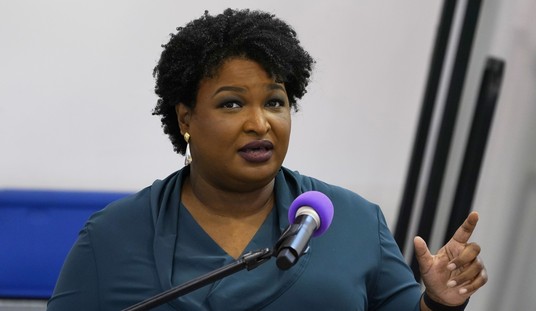Back a little more than two years ago I heard a number of people refer to the election of Barack Obama as a defining moment for our nation. Fast forward one cycle and we saw a new sense of fiscal propriety sweeping the nation. Spending Bad. Tax cuts good. Hulk Smash Big Government!
While they represent only a tiny fraction of the total budget, congressional hopefuls and current members focused in on one of the open sores which has long been rotting away the flesh of the body politic: earmarks. And while the newly minted congressmen have not been seated yet, it seemed that the rest of the beltway crowd had gotten the message. The day of the porkers had passed and there would be a moratorium on new earmarks by the Party of Fiscal Responsibility.
Well, as Allahpundit already noted in the Quotes of the day post, that didn’t last very long. Some of the old guard is already asking, Dear God What Have We Done? And the biggest surprise of all may have been that Michele Bachmann was one of the ones leading the charge to make exceptions and redefine what really constitutes an earmark.
This immediately got under the skin of my friend Liz Mair, a well known RINO, hater of America (as well as apple pie) and kicker of puppies. She writes:
Great. Nice to see Michele Bachmann, that supposed arch-conservative, both going to bat for more transportation funding (because there wasn’t plenty of spending directed at transportation-related concerns in the stimulus bill she and I both loathe) and pushing earmarks.
Here’s my question: Aside from the obvious flip-floppery and effort to facilitate rhetorical gymnastics going on here, why are people who supposedly are for rebalancing power away from the federal government to local jurisdictions keen to tap the federal coffers to pay for what are very frequently purely local projects? Note that Bachmann references not just bridges connecting Minnesota to Wisconsin (she cites that further in the article) but “roads, bridges and interchanges” if a “town, city, county or state” approves a project– something that to my mind indicates she’s concerned not just about funding transportation projects where there is an interstate element, but actually where the project is purely local– and where I would argue it should therefore be funded out of local revenue.
This is the kind of thing I would more typically expect to hear from my earmark-happy congresscritter, Jim Moron. It is dismaying that Republicans aren’t even back in power and we have someone who is supposedly one of the most “principled” conservatives of the lot advocating Congress earmarking federal dollars for local transportation projects.
This is a touchy area for conservatives to attack, though not impossible. Of all the money that the federal government flushes away, one of the few areas where such appropriations could be truly considered federal in nature and appropriate is the maintenance of the nation’s interstate highway system. But, as Liz points out, many of these projects wind up going to transportation related efforts which do not cross state lines and should properly be handled on the state and local level.
But how do we square this with calls to stop bailing out states who are in trouble? Easy. Curing the ills of individual states who have sunk themselves under a burden of bloated pension funds, unions running amok and manufacturing entities who vanish when you raise their taxes every year is not part of regulating “commerce between the states.” The reality is that such depression and industrial flight are a natural result of the normal commerce between the states. Those who act wisely will attract more business (and, by definition, workers and population growth) while those who tax and spend foolishly will suffer until they change their tune.
Bottom line – we don’t need to forbid any money flowing from Washington to the states. We simply need to streamline it to those costs clearly allowed by the constitution. And that can be done outside of the earmark process if the will exists in Congress to do so.
This post was promoted from GreenRoom to HotAir.com.
To see the comments on the original post, look here.







Join the conversation as a VIP Member